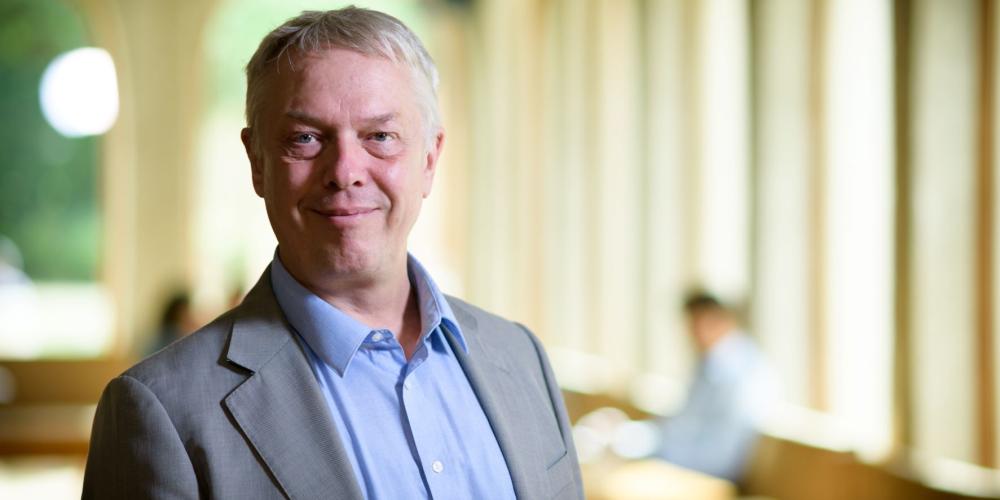
Tonight, a special quest takes place at Brussels City Hall: a quest for truth. It involves the launch of A Question of Truth, a collection of essays by VUB staff from a variety of fields, followed by a lecture by Dutch physicist, science communicator and politician Robbert Dijkgraaf. The central question is whether truth and truth-telling still matter.
Take Donald Trump. He seems to be back. With his much-discussed “town hall” on CNN, he almost effortlessly launched himself as the Republicans’ undisputed presidential candidate. With that, the half-truth and the whole lie are also back – if they ever went away – at the heart of the political debate. Fact-checkers once again had a big job looking at everything Trump was declaiming on prime time TV. His performance is a painful but vital reminder: the importance of truthful politicians and of truth in politics cannot be overemphasised.
History shows that where lies rule, freedom is lost. Oppressive regimes rely on a system of lies to sustain themselves. It is something that all the great critics of 20th-century totalitarian ideologies have pointed out, from Simone Weil to Vaclav Havel: despots, demagogues and dictators are allergic to truth and the search for it. They leave no question whatsoever about the driving force behind any search for truth: criticism and self-criticism, doubt and self-doubt. There is no room for the idea that the other – the political opponent, the ideological counterpart – might be right, might have something meaningful to say, might be worthy of dialogue. This not only stifles truth but also extinguishes individual and societal freedoms.
There is thus an intrinsic, necessary relationship between democracy on the one hand and the role of truth-telling in public debate on the other. The quality of a democracy stands and falls with the quality of debate. When that debate becomes tainted by hoaxes, fake news, trolls spreading disinformation and politicians for whom truth is irrelevant or relative, it affects the health of both debate and democracy itself.
A political reappraisal of truthfulness and reasonableness is needed; an implicit code of honour should carry any political commitment. This is also reminiscent of Emmanuel Levinas’ most famous statement – L’essence du discours est éthique: the essence of speech is ethical. All speech is embedded in our moral duty to face each other. Sincerity is the primary condition of human interaction and communication. When sincerity disappears, so does the possibility of harmonious coexistence. And when the “post-truth era” is characterised by the pervasiveness of lies in political and public debate, this indicates not a lack of factual knowledge but a lack of sincerity. The first demand we should therefore make of a politician in a harmonious society is this: be truthful. As citizens, we are better served by a truthful politician with whom we can sincerely disagree than a politician who may proclaim our own ideological beliefs but is actually a hypocrite.
However, it would be wrong to look at politics only with a pointing finger.
The fight against the devaluation of truth is a collective struggle, which requires an awareness and commitment from citizens themselves. It is both a political and social responsibility. Journalistic deontology, for instance, is crucial in the fight against fake news. For academia too, the task of serving the public debate with truth-seeking and speaking is a societal mission of vital importance. Scientia vincere tenebras is the VUB motto. The darkness of lies can only be fought with the light of truth. Doubt, uncertainty and openness to dialogue are not weaknesses, but precisely the engine of real scientific and social progress.
A healthier political climate with a revaluation of truth cannot come from politicians alone. If we want to fight mendacity in politics, we must also fight mendacity around politics. In recent years, it has become normal to claim that politicians are professional liars. That politics is just about power games. That politicians pursue their own interests and not the common good. But none of these are innocent beliefs. Indeed, it becomes a self-fulfilling prophecy: when you call politics a lying profession, a politician who strings together lies is just doing their job. You legitimise the lie. Vaclav Havel also observed this many years ago: “Those who say that politics is indecent contribute to making politics so.”
The lie has always been part of political life, as described by Hannah Arendt in her essay Lying in Politics. But do not label the lie as the norm but as an aberration, as a distortion of politics and policy. Despite the sometimes overwhelming evidence to the contrary, we should still see politics first and foremost as an honourable and service-oriented profession. From politicians, this requires an ethos of service and respect for the value of truth.